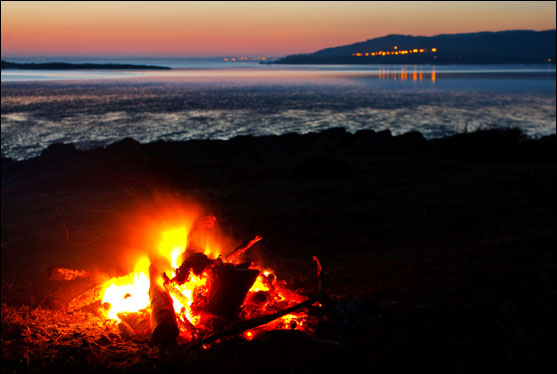
Breaking on through
Language helps us make meaning of what is happening to us, when it isn’t a barrier.
I hadn’t liked the word when I married a man. We were in our early twenties, graduate students in the heyday of that wave of feminism. Of course we had talked together about gender roles, deciding we would live as if we were both women, figuring out who did the laundry, the dishes, the social calendar, and the salary work without regard to our culture’s gender norms. It worked that way for about six months.
We are all blind to our own blind spots, and my husband and I fell into cultural norms as easily as falling asleep. Making dates with our friends was just easier for me, as an extrovert. Taking care of the children was easier for me because they were mama-oriented. Doing the laundry was not easier for me, so he did that. Sometimes. Neither of us liked to cook, so I did that.
I won’t rehash the whole seventeen years, but suffice it to say that the boys’ father and I did not live together like two women would. Whatever that means.
Now that I am living with a woman, now that I know many same-sex couples living together, I know that the phrases “like a woman would” or “like a man would” have about as much meaning as saying “glah-blah-suitcase giraffe.” It’s all mostly nonsense.
Over the years, clues would come whizzing in from the surrounding culture. On hearing that I’d earned my black belt in karate, one man said to my husband, “Well, I guess you won’t be able to tell her what to do anymore.” As if my husband had some authority that was founded on his being able to subdue me physically.
At the end of that marriage, the many timbres and tones in which I’d heard the words “You’re my wife” had worn that word out for me. Worn it out, stomped it flat, grown mold on it.
Kiya didn’t mind the word “wife” or “partner,” but said “partner” didn’t really convey to her any promise, commitment, or poetry. It sounded indistinguishable from a business arrangement. It was a pale and inadequate word with no wildness in it. “Girlfriend”? That sounded like a beginner’s word, as if we were still dating, still deciding where we were going. “Lover” carried so much sexuality; it reinforced the homophobic view that gayness is mostly about who you want to sleep with, when it is also about who you want to wake up with.
We looked back at my colleague and shrugged, bright-eyed with the adventure of what we were in the midst of doing. “We don’t know yet.”
We had ridden the train for two days to California to see our son and his wife in their new home and celebrate the new year together. We thought maybe while we were out there we would get legally married. I had to sneak up on myself sideways about this because I’d made a promise, years ago, in awful pain, never again to marry.
It seemed to be an immovable obstacle. I couldn’t figure out a way around it. Then I realized suddenly, as if a wall had fallen down, that a promise born of despair doesn’t count, that it was the last of the destructive consequences (there were many good ones) of that marriage, the last control it had over my life.
That night on the beach in LA, with our younger son and his wife there, our older son and his wife attending by video call, Kiya’s dear friend and first bandmate from eighth grade holding the space for us with her guardian energy and fierce affection, we listened to poetry and songs, we spoke poetry and promises. The waves reached the shore with a satisfied sigh in the gathering dusk. Our fire burned, colorful and fragrant, anchoring our little group of humans in the enormous night. It was New Year’s Eve. Many fires dotted the beach anchoring many groups of friends and families on the surface of this planet. Fireworks scattered themselves into the sky.
Language helps us live. It helps us make meaning out of what is happening to us. It makes certain things too easy and other things too hard. How do you do something for which there is no language? How do you signal your intentions to love someone as long as you can, as well as you can? How do you communicate to friends, family, and strangers the level of commitment you have made to your beloved? How do you feel when the language of your people demands that you fit into the mold of how it’s been done in the past or exist in a blank space without context or culture to even recognize, much less support, what you are doing and who you are?
We will count on the rings we wear to let people know that we have made promises, read poetry, invited family, expressed commitment, built a fire and said vows, cried, wiped tears from one another’s faces by the ocean, and rubbed one another’s hands like lucky pennies for the courage to do what we’ve done and move on to all that is to come.
Later that night on the boardwalk at Venice Beach we listened to a Doors cover band keeping Jim Morrison’s memory alive as best they could. Old school punk kids with spikes in their Mohawks accompanied by patient dogs on rope leashes bragged and bantered, ignoring the folks trying to get some sleep on the benches. Life at midnight on the edge of a continent eddied around us, the LA women, the riders on the storm and those of us breaking on through to the other side.
Photograph (above): © 2013 iStockPhoto/StockSolutions.
Comments powered by Disqus






